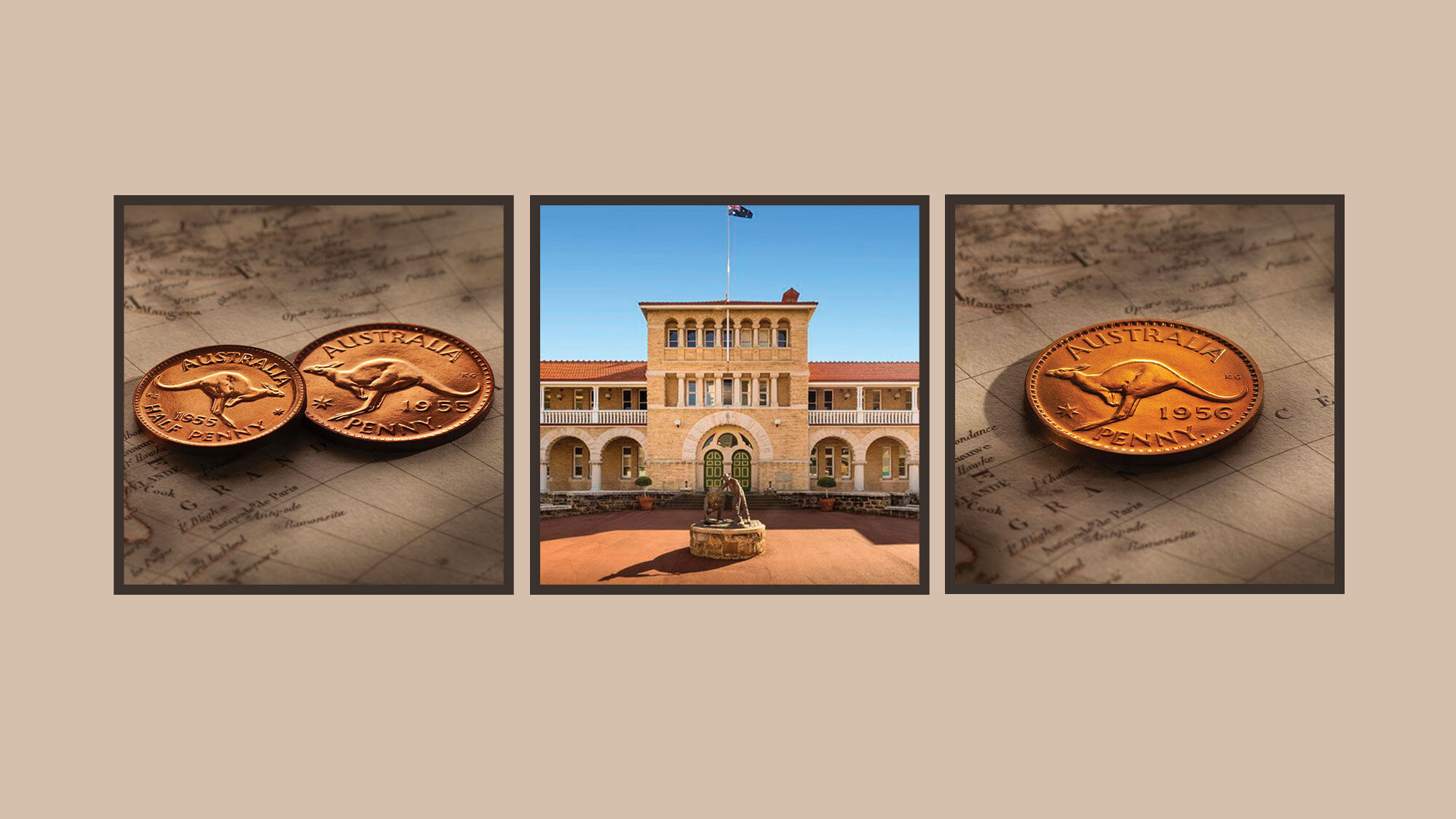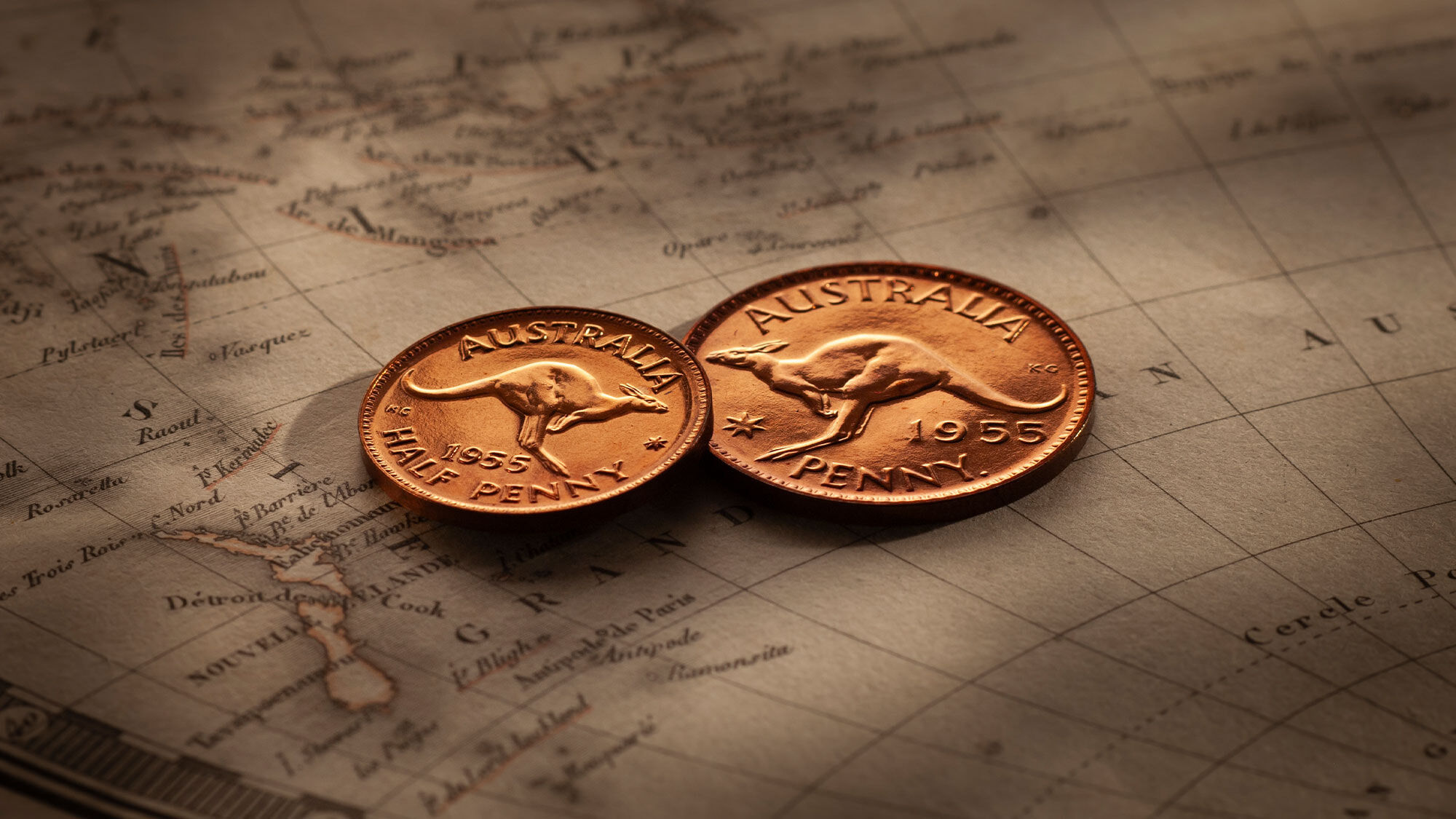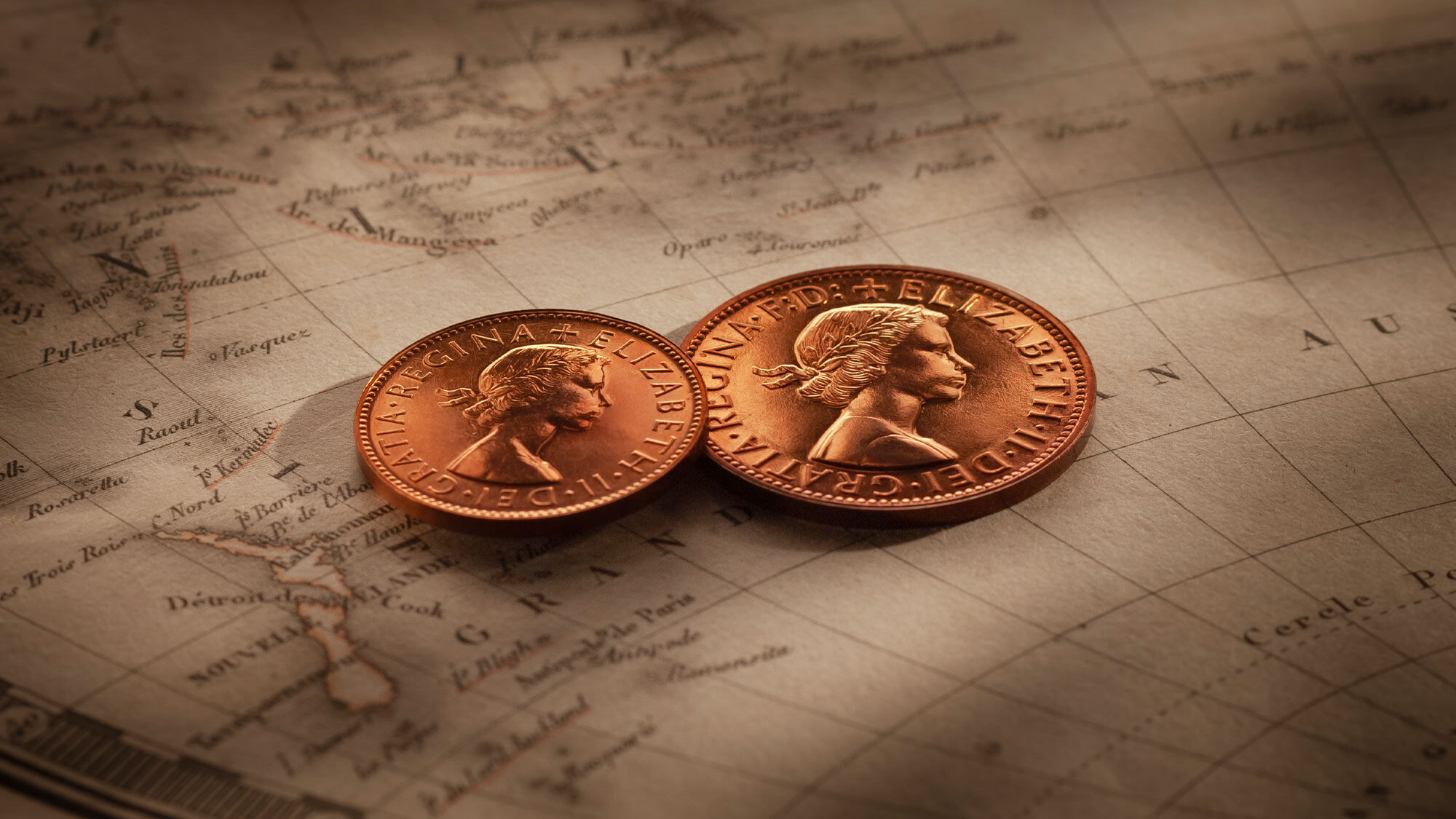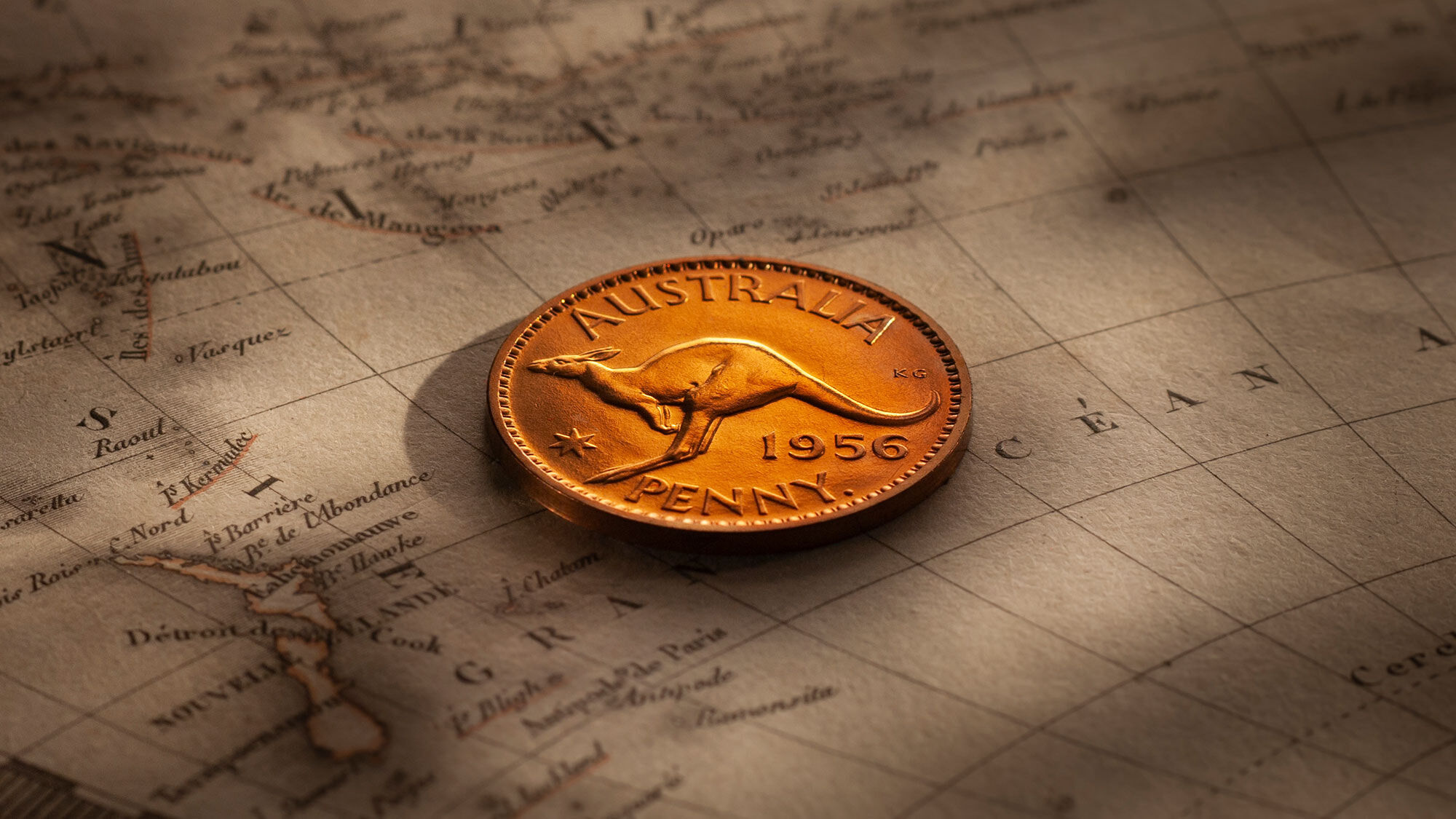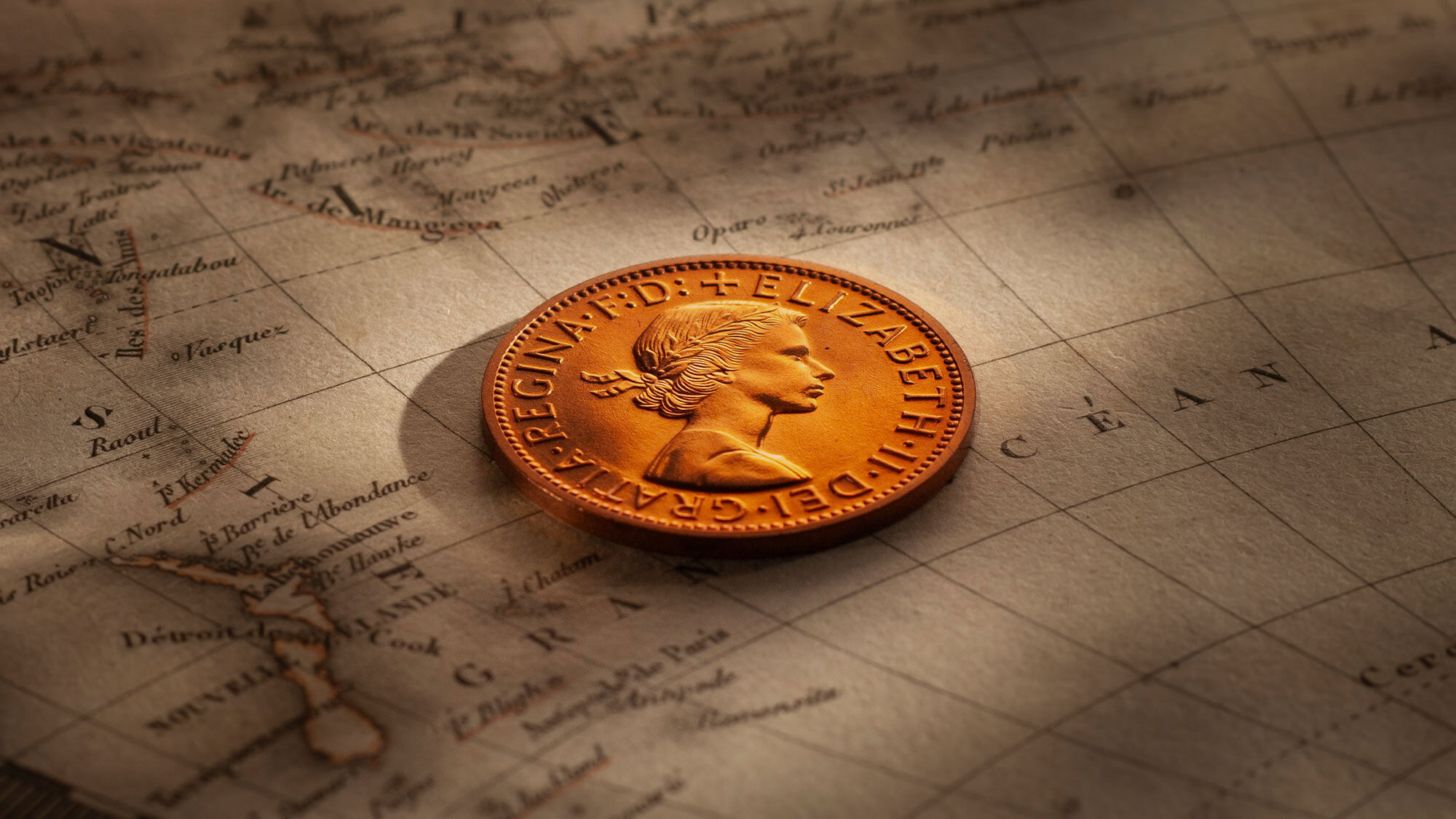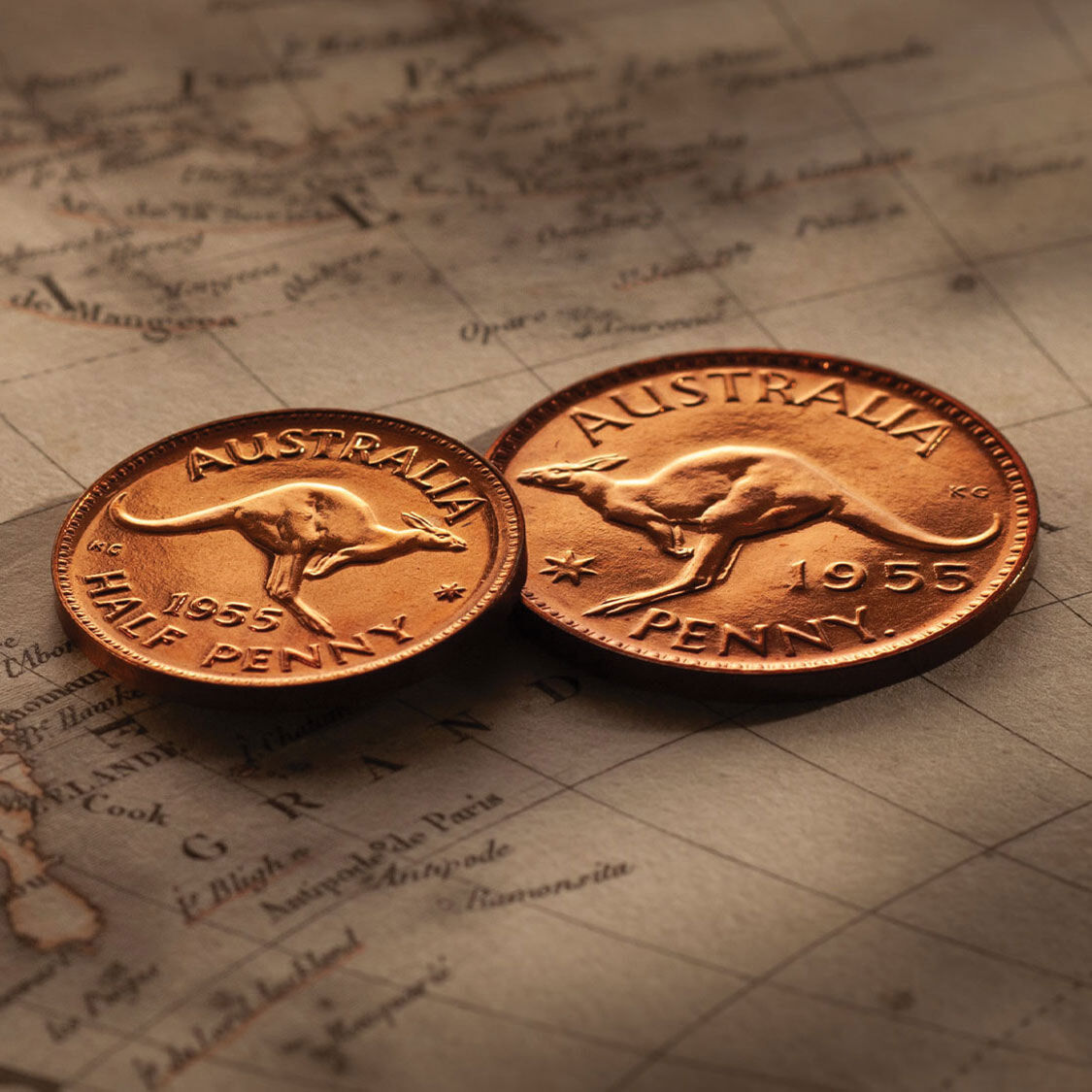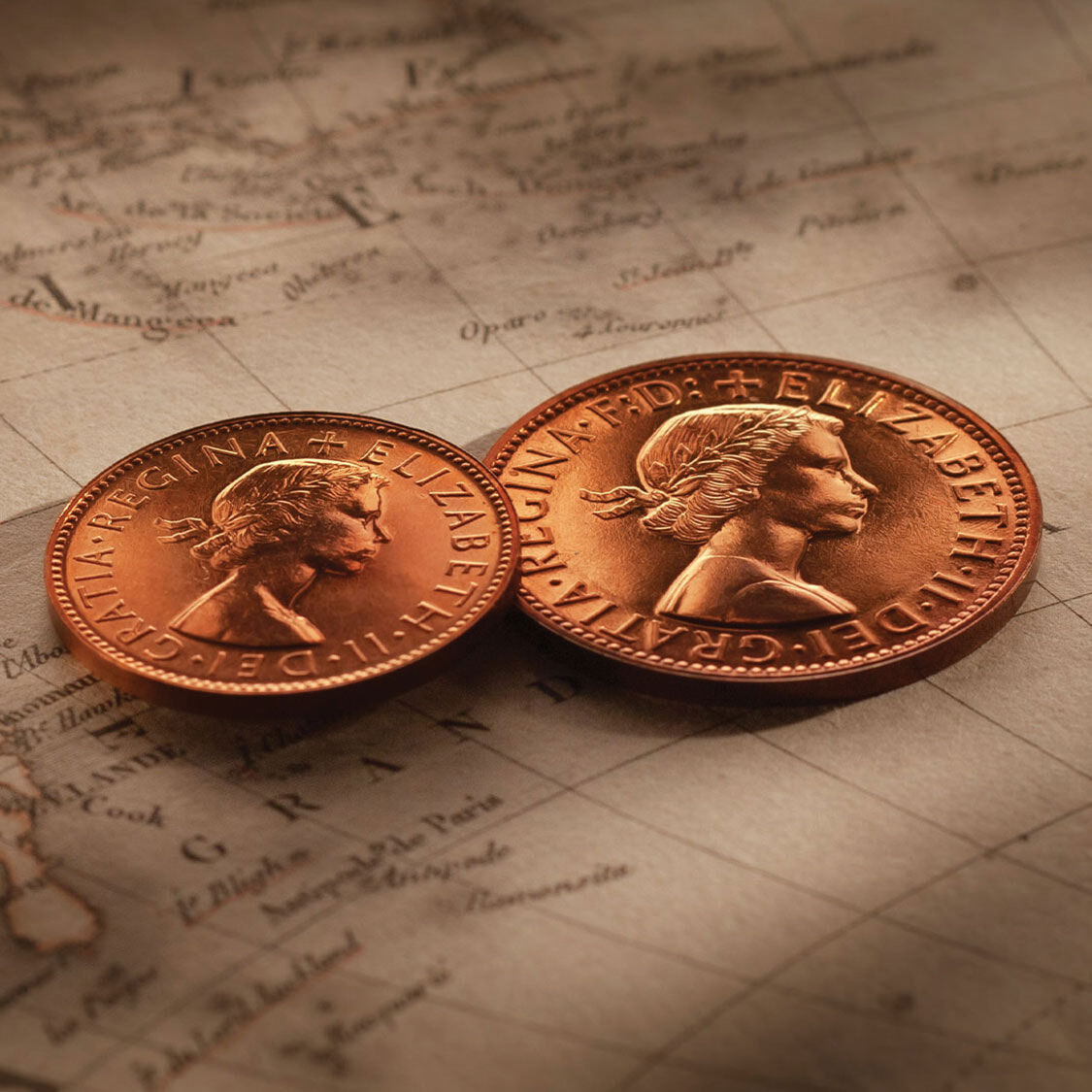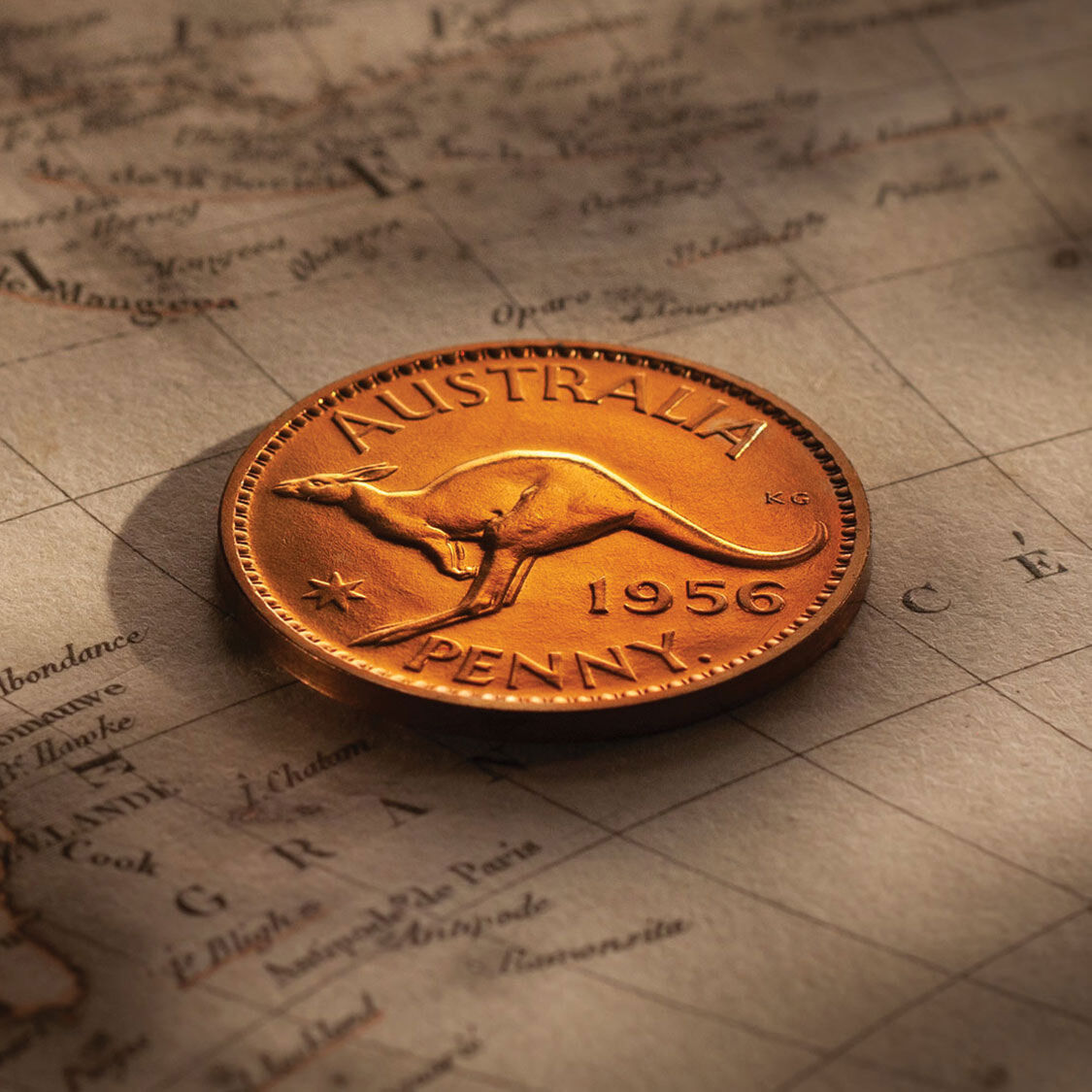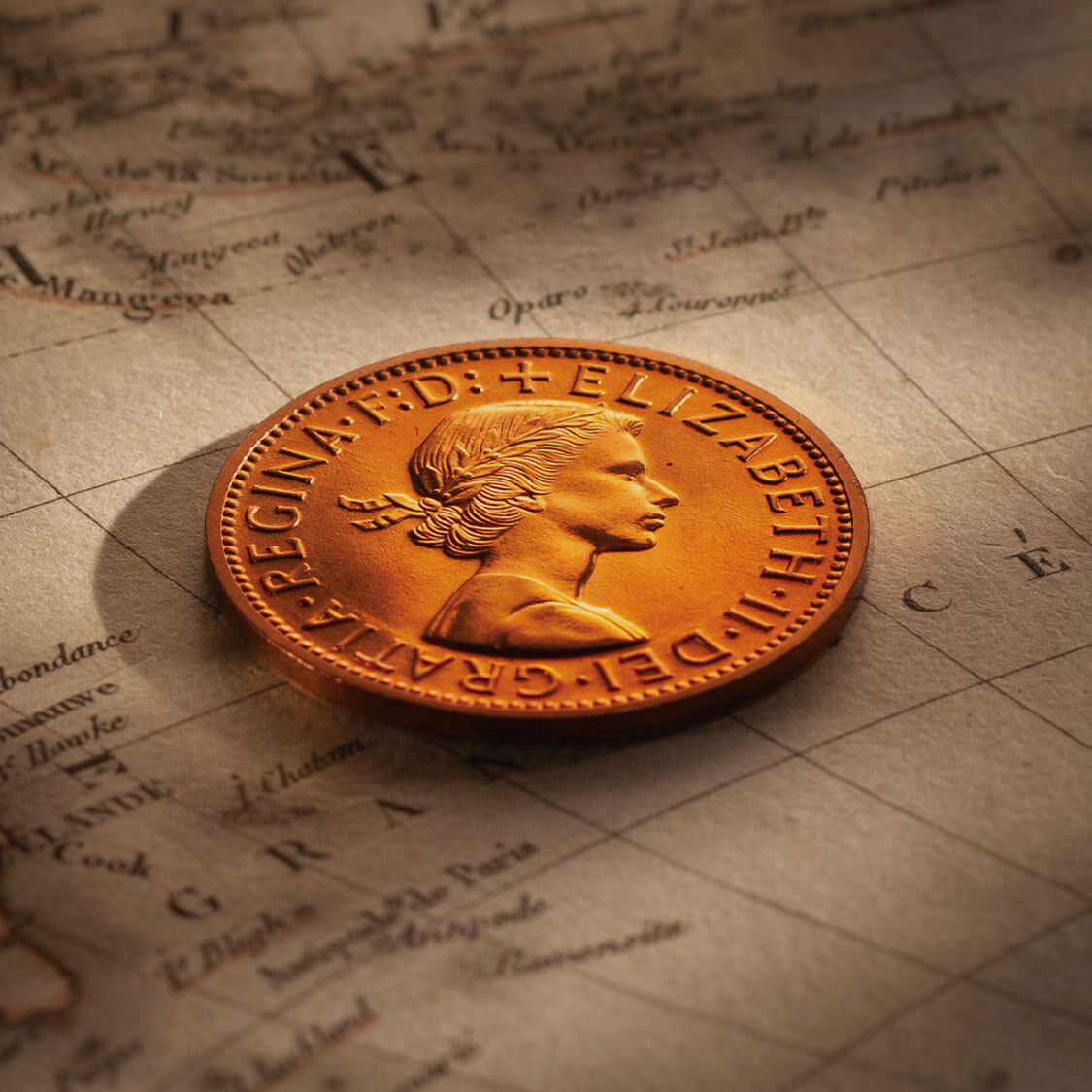Perth Mint 1955 & 1956 Proof Coppers (3 coins)
There are some key indicators that collectors look out for when making a numismatic purchase. And all of this is weighed up against the price.
How rare is the coin for the rarer the better. The date is critical. The more important the date, the better. And consideration is given to the effigy. George V? George VI or Elizabeth II? And the quality?
And the final deliberation ... how popular is this area of the market. In a supply and demand market, popularity is important.
This trio of 1955 Proof Penny, 1955 Proof Halfpenny and 1956 Proof Penny has the lot! Extremely rare, sought after effigy of the late Queen Elizabeth II, top quality and an extremely popular collecting series.
Matched pair of 1955 Proof Penny & 1955 Proof Halfpenny struck at the Perth Mint
Price: $35,000
Superb FDC
Ex Dr Vincent Verheyen
Mintage 301 pairs
The passing in 2022 of Queen Elizabeth II has again highlighted the role of coinage in charting the course of history. This Proof 1955 Penny and Proof 1955 Halfpenny were struck with the effigy of the late Queen Elizabeth II.
1956 Proof Penny struck at the Perth Mint
Price: $20,000
Superb FDC
Ex Dr Vincent Verheyen
Mintage 417
This 1956 Proof Penny was also struck with the effigy of the late Queen Elizabeth II.
Important dates. Low mintages.
For collectors, the year 1955 is a key date. It was the first year the Perth Mint kicked off a program to strike proofs in 'commercial quantities' and sell to collectors. Similar to what the Royal Australian Mint does today with its annual proof coining program.
The mintage was 301!
The second year of the series, 1956, also comes in for an inordinate level of attention for it too is a rare date. The Perth Mint struck only 417 coins!
The coins were sold for a premium of two shillings above face value, the face value paid to Treasury and the premium went to the mint. Government placed only one restriction on the Perth Mint. They could only produce proof examples of those coins they were minting for circulation. For the Perth Mint that meant striking proof coppers only.
The series continued for another eight years, ceasing in 1963 just prior to decimal changeover.
After two years the series really took off and mintages increased to around the 1000+ level making the 1955 and 1956 coins the pick of the lot.
A popular series.
The series of Perth Mint Proof Coins struck between 1955 and 1963 is an important series in our numismatic history: a catalyst for the introduction of the proof coining program introduced by the Royal Australian Mint, Canberra in 1966.
It also is an affordable one, making it one of the most popular collecting series in the Australian coin market.
That the Perth Mint is today a leading coin producer makes their pre-decimal proofs historical. But also vibrantly current. So the ‘Perth Mint’ message always remains strong, underpinning future interest.
And the fact that these coins bears the effigy of the late Queen, Elizabeth II, will be a huge boost to their popularity.
Extremely rare.
That the Perth Mint was permitted to strike 'commercial quantities' of proof coins may have some readers thinking 50,000? 10,000? Perhaps 5000?
The mintage of the Proof 1955 Penny and Halfpenny was 301 pairs. The mintage in 1956 was 417, involving the penny onlyy.
Natural attrition has taken it toll on the original mintage for the coins were not encased in fancy packaging but housed only in small cellophane holders and despatched to collectors in an envelope. Many of the coins have filtered their way into circulation. Others severely damaged through mishandling making an already small mintage even smaller.
Supreme proof quality.
There is a perception amongst collectors new to the market that all proofs are created equal. And therefore should be valued the same. The notion is that because a coin is struck to proof quality it has to be good. Those perceptions are incorrect.
Correct handling and storage is a critical issue to preserving the value of proof coins. And these coins have been brilliantly preserved.
In an article published in the Journal of the Numismatic Association of Australia 2005, renowned numismatist Paul Holland contends that the Perth Mint proofs were created for unaided vision, the point here that a collector would not need an eye-glass to take in their beauty. Looking at these proofs of Dr Vince Verheyen, you can only but agree!
He contends that the Perth Mint modeled their bronze proofs on the Royal Mint London’s 1951-PL proofs, for they, as a general rule, are stunning. Visually impactful. He also comments that the Perth Mint went the extra yards with their production and ground the rims by hand to ensure they were high and squared-off.
© Copyright: Coinworks
